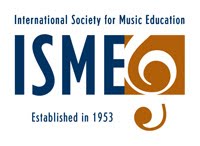Michael L. Mark
Emeritus Professor of Music, Towson University
The most eloquent statement I have seen about advocacy for education was made by former United States Senator Daniel Patrick Moynihan: "Knowledge is a form of capital, much of it formed by government investment in education. . . . Politics has become a process that deliberately seeks to effect such outcomes as who thinks, who feels how." Senator Moynihan has pinpointed the reason that the music education profession needs to advocate on its own behalf.
Why is it important that music education advocates serve as a voice of the profession to civic officials? Why do we need anybody to advocate for us? The answer is simple: we cannot expect policy makers, at least not all of them, to understand why the work that we do as music educators is important to our students, our communities, our nations, and to civilization. We music educators are musicians as well as teachers. We know inherently the importance and value of music. We feel it deeply and we believe it. If policy makers who have the authority to control education do not know these things, then we must not only tell them, but persuade them as well.
It is the responsibility of advocates to ensure that those responsible for formulating public policy do so on the basis of accurate knowledge and informed judgment.
Music education speaks to people in many ways. The most obvious voice is that of music itself. People value music and recognize the need for children to be musically educated. Students are another voice of music education. When they demonstrate their musical learning and accomplishments, they are the voice of music education as it speaks to parents and communities in a convincing manner. Another voice of music education is that spoken by advocates. Advocacy is the voice of the music education profession as it speaks to members of boards of education and legislators, and government administrators.
Most music educators are uncomfortable in the role of advocate. We have spent years preparing ourselves to become musicians and teachers of music. Our backgrounds and experiences have not prepared us to approach politicians and administration officials to explain why what we do is so important to them. We would like to think that they already know this, but we also know that just isn’t so. And so we need people to advocate for us.
I have heard music educators disparage advocacy because they feel that advocates sometimes misrepresent what we do in our professional lives. They might or might not be right, but we have to recognize that there are two aspects of advocacy: how we advocate, and what it is that we advocate. These are separate issues. If advocates do not represent our interests accurately, then we must correct them. The issue being addressed in this paper, however, is not what is advocated, but the fundamental need for advocates to represent us to policy makers.
Advocacy is a form of lobbying. Virtually every professional and vocational interest, whether the arts, business, industry, or labor, needs to be represented to policy makers. Otherwise, policy makers neither know why our work must be supported, or what we need to continue serving the public interest effectively. And we need a lot. We need recognition by governing officials that music education exists for important reasons. When we persuade them that we serve important needs of the greater community, then they can perceive the relationships between public policy and music education and can make decisions that are critical to our profession. Should portions of funding for school programs be designated for arts education? Should education laws recognize that curricular decisions must include music education? Should those laws support industrial issues that affect musical instrument manufacturers, music publishers, uniform makers, retailers, and other interests? Should our education laws dictate that every child must have a musical education in the interest of equal educational opportunity? As we analyze the myriad issues that connect music education to public policy, it becomes apparent that we need to be represented by advocates who are knowledgeable about our professional needs and who are capable in matters of public policy.
The Music Educators National Conference provides a model of effective professional advocacy at the national level in the United States. Over the years, MENC has developed its advocacy capabilities by identifying issues that need to be brought to the attention of policy makers. It has also coalesced with other education associations to increase the numbers of people represented by arts education advocates. This is especially important because our clout increases as the numbers of people who are represented increases. Although the United States government recognizes music education as a discrete discipline, much legislation has been in the name of arts education–music, visual art, theatre, and dance. MENC has also established strong ties with the music industry, which multiplies the number of people and professional interests that are represented several fold, and equally important, relates our profession directly to the national economy. Obviously, policy makers will consider our needs more readily as we establish our ties to business and industry as well as to schools.
Undoubtedly there are different models for national advocacy in other countries. I hope that music educators from other countries will share their advocacy strategies and techniques through this web site.
If we truly believe in the value of our work, then we owe it to ourselves, our students, our colleagues, and our communities to be sure that education policy makers are informed and supportive of us.

No comments:
Post a Comment